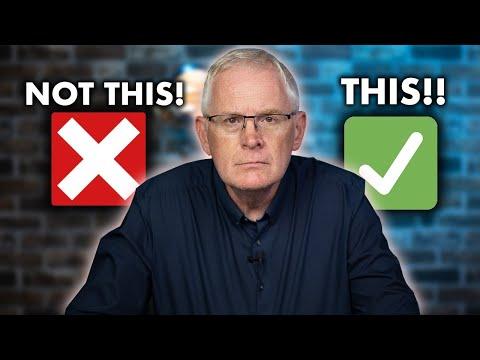I found myself in a perplexing situation last year. The economy was faltering, and news headlines screamed about the 2023 recession. At first, it felt like an impending doom, with markets crashing and businesses faltering. It was disheartening, seeing the chaos around me and realizing the financial strain it was placing on my life and others. But then, a thought struck me: could this crisis be the ultimate opportunity to transform my financial destiny? This question spurred me into action and led me to delve deep into strategies that could turn the economic downturn into a wealth-building advantage.
Initially, the recession seemed like an insurmountable obstacle. My investments were losing value, and job security was uncertain. It felt as though the ground was shifting beneath me. But instead of succumbing to despair, I decided to view the recession through a different lens. What if this economic downturn could be leveraged to create significant wealth? The idea seemed audacious, yet intriguing. I began exploring various strategies that could potentially turn this crisis into a financial advantage.
The first step I took was to analyze the recession’s impact on different industries. While some sectors were suffering, others were thriving or at least showing resilience. For instance, industries like technology and healthcare continued to perform relatively well. I realized that identifying and investing in these resilient sectors could be a viable strategy. So, I dedicated time to researching companies within these fields that were well-positioned to weather the storm. By investing in these sectors, I aimed to capitalize on their relative stability and growth potential during the downturn.
Next, I focused on real estate. Historically, recessions have led to a decrease in property prices. I saw this as an opportunity to enter the real estate market at a lower cost. I started looking for undervalued properties and considered how I could use these opportunities to generate rental income or, in the long term, benefit from property appreciation as the economy recovered. I educated myself on real estate investment strategies, including how to identify properties with strong potential and how to negotiate favorable deals.
Moreover, I turned my attention to financial education. The recession had exposed gaps in my understanding of personal finance and investment strategies. To bridge these gaps, I invested time in learning about various investment vehicles, including stocks, bonds, and mutual funds. I attended webinars, read books, and consulted with financial advisors. This knowledge was crucial in making informed decisions and avoiding common pitfalls during turbulent times.
I also examined the potential of starting a side business. Many successful entrepreneurs have emerged from recessions by identifying unmet needs and offering solutions. I brainstormed ideas for a business that could thrive even during economic downturns. I focused on services or products that would be essential regardless of the economic climate. By starting a side business, I aimed to create an additional income stream and build a foundation for future growth.
Networking played a significant role in my strategy. During the recession, many professionals and entrepreneurs were open to new opportunities and collaborations. I actively participated in industry events, joined online forums, and connected with like-minded individuals. These connections not only provided valuable insights but also opened doors to potential partnerships and investment opportunities.
In addition, I paid close attention to personal budgeting and cost management. The recession forced me to reevaluate my expenses and prioritize essential needs. I created a detailed budget and identified areas where I could cut costs. This financial discipline was crucial in maintaining a stable financial foundation during the economic downturn.
As the recession persisted, I remained patient and resilient. Wealth-building during a downturn requires a long-term perspective and the ability to withstand short-term volatility. I kept a steady focus on my investment goals and avoided making impulsive decisions based on market fluctuations. This disciplined approach helped me stay on track and make strategic moves that aligned with my financial objectives.
Over time, my efforts began to bear fruit. The investments I made in resilient sectors and undervalued properties started to show positive returns. My side business gained traction, providing an additional income stream and contributing to my overall financial growth. The knowledge and skills I acquired through financial education empowered me to make informed decisions and navigate the complexities of the economic landscape.
Looking back, I realize that the 2023 recession, while challenging, presented a unique opportunity to reshape my financial future. By approaching the crisis with a strategic mindset and leveraging the strategies I outlined, I was able to transform a seemingly dire situation into a path toward wealth creation. It was a journey that required perseverance, adaptability, and a willingness to embrace unconventional opportunities. Ultimately, the recession became a catalyst for growth and success, proving that even in the face of adversity, there are opportunities to be seized and fortunes to be made.
